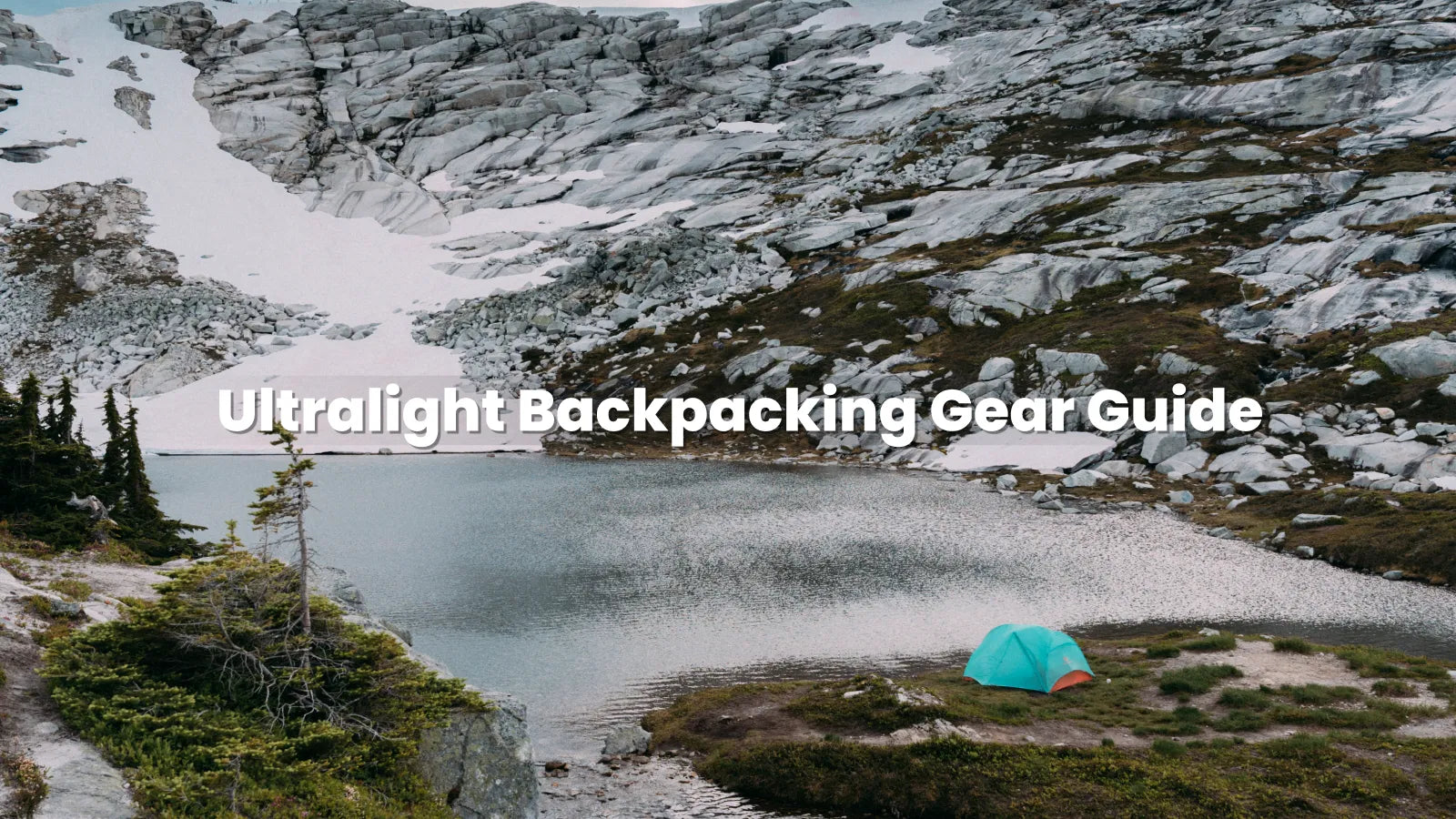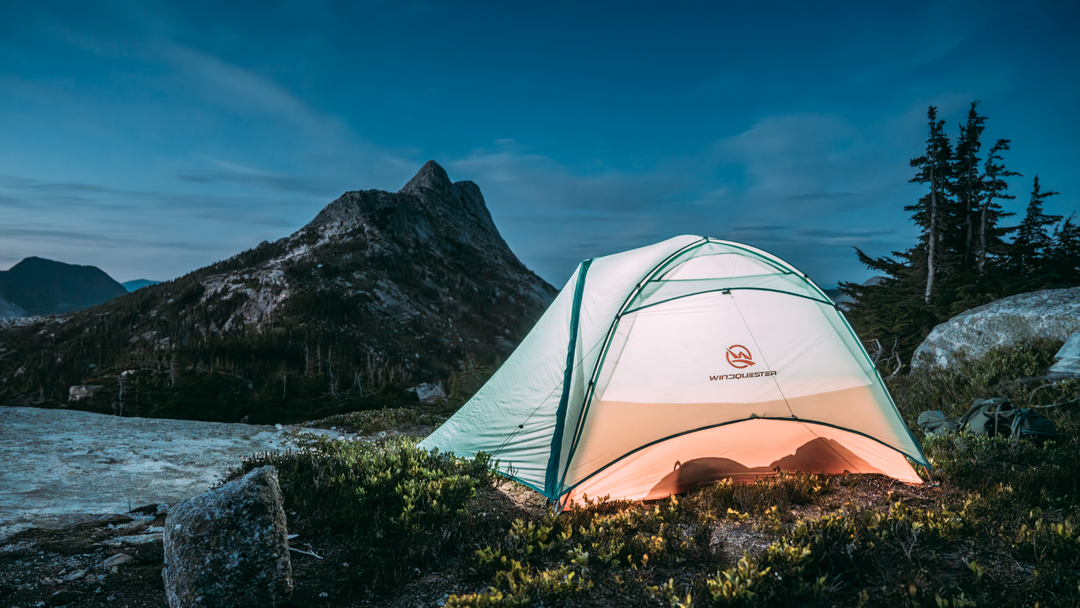Ultralight Backpacking Gear Guide 2025: Best Tents, ASTM R-Value Pads & Trekking Poles

Carry less. Explore more. That’s the core of WindQuester. Born between the craggy Rockies and the vast Pacific, our mission is simple: build ultralight, bomb-proof gear so you can go farther, climb higher, and experience the wild with more freedom . When the wind howls and the trail disappears, great gear should disappear on your back—not in performance.
Why Go Ultralight? More Than a Buzzword
Ultralight is not a fad—it’s a philosophy. Every pound you add slows you down and increases fatigue; every ounce you save helps you travel farther, safer.
- Go farther, recover faster: Less weight means less impact on knees and joints, lowering injury risk on big days.
- Simpler setup: Field-tested, smart designs pitch and pack quickly—critical when storms roll in or daylight fades.
- Built to last: We use durable 10D/15D silnylon and DAC NFL aluminum to extend product life and keep gear out of landfills.
Whether you’re thru-hiking the PCT or sneaking in a weekend overnighter in the Whites, dropping weight while keeping reliability is the ultimate performance upgrade.
Best Ultralight Tents (Freestanding vs. Tunnel)
On forums like Backpacker and Reddit r/Ultralight, the most common question is simple: Freestanding or tunnel? Here’s how our flagship tents meet both needs.
Horizon Lite 2 — Freestanding & Fast
Horizon Lite 2 is built for hikers who want a quick, intuitive pitch anywhere—from forest platforms to alpine rock ledges.
- Weight: 1.29 kg (2.84 lb); Packed size: 43 × 11.5 cm (16.9 × 4.5 in).
- Two doors & two vestibules keep traffic flowing and gear dry on multi-day trips.
- DAC NFL aluminum poles deliver a best-in-class strength-to-weight ratio with color-coded clips for a three-minute pitch.
- 10D single-coated silnylon fly (≥2000 mm HH) handles mountain thunderstorms and coastal downpours.
Shop Horizon Lite 2 — perfect for hikers, bikepackers, or couples camping mixed terrain.

Gale Lite 2 — Wind-Stable Tunnel
When you expect high winds and sideways rain, Gale Lite 2 is your best ally.
- Weight: 1.31 kg (2.89 lb); Packed size: 41 × 12.5 cm (16.1 × 4.9 in).
- Aerodynamic tunnel shape sheds gusts with ease while maximizing interior space.
- Oversized single vestibule swallows wet boots, packs, or a small cook setup.
- 10D double-silnylon fly with Dyneema guy lines and YKK water-resistant zips boosts weather protection.
Shop Gale Lite 2 — ideal for coastal storms, alpine ridges, or exposed bikepacking routes.
Key takeaway: Choose Horizon Lite 2 for maximum flexibility and freestanding convenience; pick Gale Lite 2 for wind stability on bare ground.

Sleeping Pads with ASTM F3340 R-Values
Comfort in camp starts under you. The ASTM F3340 standard lets you compare insulation performance (R-value) across brands.
General guidelines:
- Summer / 3-season: R 2–3 is plenty.
- Shoulder seasons & chilly desert nights: R 3–5 recommended.
- Winter / alpine: R 5+ or foam + inflatable stack.
Foam Pads — Zero-Fail Foundation
Foam never leaks, never fails, and doubles as a trail-side picnic mat.
- Horizon X Foam — 410 g (0.90 lb), R 1.9, classic Z-fold for instant deployment and moisture barrier.
- Elevate X Foam — just 250 g (0.55 lb), R 1.5, our lightest option for fast-and-light summer trips or as a winter underlayer.
Both use dense IXPE foam with an aluminum film to block ground moisture and reflect heat—ideal as a base layer beneath inflatables in sub-freezing conditions.
Inflatables — High R, Tiny Pack Size
When every gram and cubic inch matters yet you need four-season warmth, go inflatable:
- Horizon X Inflatable — 580 g (1.28 lb), packs to φ10 × 22 cm, R 8.5+, built for deep-winter missions.
- Elevate X Inflatable — 630 g (1.39 lb), φ10 × 27 cm, R 7.5, great for extended alpine objectives.
Each uses 20–40D nylon with TPU coating and an integrated valve for fast inflate/deflate.
Carbon vs. Aluminum Trekking Poles (and Why We Like Strider)
Ask any hiker: trekking poles aren’t optional. They save knees, add power on climbs, and help prevent slips. The big debate remains: carbon or aluminum?
- Carbon: lighter and stiffer—ideal when every ounce counts and you’re carrying all day.
- Aluminum: bends rather than snaps and handles hard side-loads better.
WindQuester balances both with multi-layer T800 carbon and rock-solid locks:
Strider Z — Z-Fold Speed
- 198 g per pole, folds in ~10 seconds.
Packs tiny for alpine scrambles and trail runs where every cubic inch matters.






Leave a comment